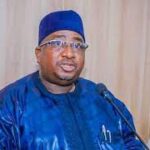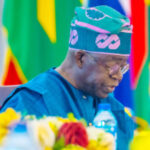
Ailing New Nigerian Newspapers Ltd currently looks to the 19 northern governors to get back its life following a promise to that effect, but it is not the first time that the owner-governors would make this kind of promise
Workers of one of the country’s oldest dailies, the New Nigerian Newspapers (NNN) Ltd, called off their strike last month after they stopped production since January 2013 following the inability of the management to continue paying their salaries.
The workers were owed several months of salaries and other entitlements and the reason for the default was said to be operational insolvency. Since that time, there have been repeated attempts to revitalize the company to no avail.
A couple of things happened. First, two editions: New Nigerian weekly and New Nigerian on Sunday were suspended. Even the daily edition was printing less than 2,000 copies. Also, the management removed some ‘redundant’ staff but did not pay them their benefits.
Now, Daily Trust on Sunday gathered that the months of unpaid salaries and stop of work impacted negatively on the staff. Some lost their lives and some others were ejected from their rented houses as they could not afford the rents. The children of some were withdrawn from school due to unpaid fees. Some lucky workers moved on, securing employment in other organisations but even they face some difficulties, especially those who have to go away somewhere while their families remain back in Kaduna.
During a street protest by the workers in October 2014, they decried what they called inhuman treatment meted on them by the management and owners of the company. The workers, represented by the Joint Consultative Committee of the Nigeria Union of Journalists (NUJ) and National Union of Printing, Publishing and Paper Products Workers (NUPPPPROW), issued a communiqué, asserting in part that they did not wish to go suffering and losing members to death while the “redundant management staffs are enjoying the comfort of the company’s quarters.”
They also lamented the “deplorable” state of the company, which they said does not tally with the vision of the founding fathers. “We are calling on the federal government to prevail on northern governors to, as a matter of urgency, brace up to their responsibilities and salvage the company from total collapse,” they said.
At some point, the NNN workers blamed their ordeal on the then Northern governors under Mu’azu Babangida Aliyu who was the Chairman of the Northern States Governors Forum (NSGF) and under whom promises made were never fulfilled. They said Muazu Aliyu never visited the NNN to see things for himself although he was often in Kaduna.
The then Chairman of the NNN chapel of the NUJ, Comrade Amos Mathew said the workers and the company suffered under the last northern governors, while expressing hope that the new crop of northern governors elected in April 2015 will move more purposefully and revitalize the company. He said, “The election of the new governors has heralded a new era in the region. New Nigerian Newspapers suffered in the hands of the past governors. We thank God for this change and call on all political office holders, whether appointed or elected, to join hands in this revival effort. We also wish to remind the governors that the NNN will be 50 years old by January 1st, 2016. But the company has been closed now for over two years, while over 15 of our colleagues have lost their lives due to illness as a result of lack of money. So, we look forward to a vibrant Northern leadership that will see to the revival of NNN.”
1999-2007 northern governors helped NNN: A staff who spoke anonymously said the set of 1999-2007 northern governors did their bit for NNN, with governors like Ahmed Mohammed Makarfi of Kaduna State, Late Umaru Musa Yar’adua of Katsina State, and Abdulahi Adamu of Nasarawa State contributing financially to the paper, which aided the company to weather the storm then and stay afloat, but that between 2007 and 2015, not much was done by the forum for the company “except the outstanding efforts of Governor (later Vice President) Mohammed Namadi Sambo and Governor Aliyu Magatakarda Wamako of Sokoto State then.” The leadership of the forum then, the staff said, did little or nothing to aid the company or the staff.
The current Chairman of the NNN chapter of Nigerian Union of Journalists (NUJ), Abdull-Azeez Ahmed Kadir, said from the new governors’ pronouncements in their maiden meeting in Kaduna and the committee set up to review all past decisions taken on the company, the NNN staff are hopeful that the new governors will take proactive steps to revive the NNN.
New Nigerian online edition ‘soon’: Kadir said that with landed properties the company owns, coupled with commercial printing facility that can be deployed for money making, the hope of revival is very much alive. Kadir said that the management of NNN needs to double their efforts, as there is need for innovative management. “As the Chairman of the NUJ NNN chapel, I need to keep the management on their toes and to reach out to stakeholders to key into the effort of reviving the company. We are kicking off with the on-line edition soonest,” he said.
Speaking on the prospects of a revived NNN, Kadir said, “There is hope for the revival of NNN. With an 11-storey building (Nagwamatse House), a 3-storey structure (Imam House), a huge commercial printing outfit with state of the art machines, estates with several bungalows, undeveloped landed properties in Kaduna, Abuja and an expansive office and land in Lagos, among several others, the NNN has hope of revival.”
Daily Trust on Saturday gathered however that host Governor Nasir El-Rufai has not identified with NNN since assumption of office as he has visited closed-down textiles, Arewa Hotels and other legacy companies of the Northern Region without visiting the NNN which is closer to his office and residence than any of such other companies and despite a letter that the workers say they have written to request his audience.
No strike, no work: The strike embarked upon by the workers ended September 8, 2015. A statement to this effect was signed by the NUJ NNN chapel chairman Kadir and NUPPPPROW NNN chapel chairman, Bulus Shabayan, saying, inter-alia, “Following the resolution of the meeting between management of the NNN and the Joint Workers Union … the NNN workers have decided to suspend their 31-month old industrial action which began on January 22, 2013 and have resolved to resume duty with effect from Tuesday September 8, 2015.”
Findings indicate that since the strike call-off, the workers have been regular in their various duty posts but the management has not provided materials for production. This they attribute to lack of funds. To get beyond this, the workers advised that the company’s housing estates and office complexes in Kaduna, Abuja, Lagos and elsewhere should be put to commercial use, especially the bungalows now being occupied almost free of charge by senior staff, to generate funds for the company. The workers also advised the management to utilize the commercial outfit to raise money for the company.
Our correspondent observed that the buildings of NNN are in good condition but require renovation, especially the roofs that are leaking and wall paintings that are peeling off. New furniture items are also required, as well as computers and other ICT facilities. Similarly, more sophisticated printing machines would do as most of the current ones are obsolete.
Currently, the company has no access to public power supply and it was gathered that electricity was disconnected due to debt even before the strike by the workers. However, tap water still runs around the company.
When contacted, the Managing Director of NNN, Tukur Abdulrahman, said the management is optimistic that the company would be revived, stressing that this is more so as the new set of leaders of the owners of the company (the 19 northern state governments) are equally enthusiastic about the revival of the company and the newspaper titles.
“Last month, the Northern Governors’ Forum met in Kaduna and resolved to set up a committee to undertake an in-depth study of the issues raised by the management of the company with a view to making recommendations to the Forum for consideration at its next meeting. Meanwhile, efforts are on to start publishing the newspapers online. In a short while, you will begin to read the NNN titles online,” the NNN MD said.
In his reaction, the Special Adviser on Media to Governor Kashim Shettima of Borno State, Isah Gusau, said the governor is deeply committed to reviving NNN, in line with the wish of the Northern Governors Forum, adding that part of their action plan is contained in the communiqué issued after their recent meeting in Kaduna.
The aspect of the said communiqué relating to the NNN reads: “The 19 governors of the states in the North have pledged to resuscitate the region-owned New Nigerian Newspaper. Secretaries to the Northern state governments have been asked to carry out an in-depth study of New Nigerian Newspapers Limited and present a report for consideration at the next meeting of the forum.”
Promises and then what?: Promises have been made severally in the past. Will this particular promise yield something tangible for the ailing New Nigerian Newspapers?
As one of the substantial legacies of the late Sardauna of Sokoto, Sir Ahmadu Bello and the voice of the northern part of the country back in its early years, the New Nigerian was a strong force.
The NNN which is located in the heart of Kaduna, capital of the defunct Northern Region, was established by the government of the region under the premier, Sir Ahmadu Bello (late), on 1st January 1966. Ironically, the NNN was commissioned just 16 days before the military coup that killed him and other prominent leaders of the region.
The newspaper, established with the aim of “telling others about the North and telling northerners about others” and as a training ground for young journalists, and at a time the North lacked an outfit to match what was widely regarded as negative media publicity from the other regions of the country.
Over those years, the NNN succeeded substantially in covering the North, influencing government programmes, as well as churning out notable journalists and technocrats, a good number of them doing well today in other publications especially across the North.
As soon as the Northern Region was dissolved through the creation of 12 states in Nigeria by the Federal Government in July 1967, the ownership and management of the company was transferred to the northern states, managed by the Interim Common Services Agency (ICSA). The company was later taken over by the Federal Government in August 1975 and placed under the supervision of the Federal Ministry of Information. It was handed back to the northern states in 2006 and was then controlled by the 19 northern states.
New Nigerian Newspapers has four titles: New Nigerian (daily), Gaskiya Tafi Kwabo (Hausa Edition published Mondays and Thursdays), New Nigerian Weekly (published on Saturdays) and New Nigerian On Sunday.



